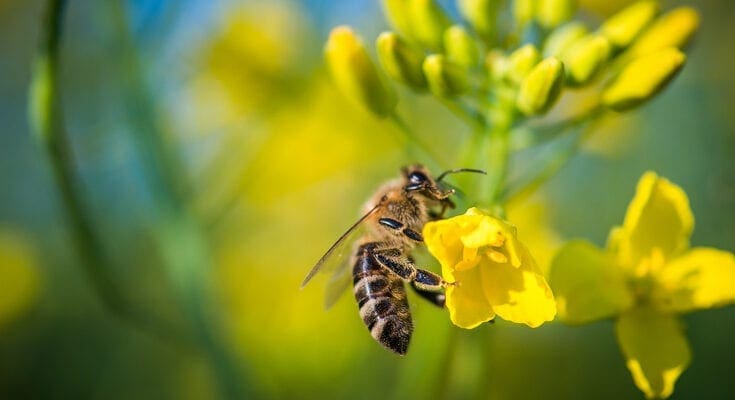Help for bees as neonicotinoid insecticides are banned Europe-wide
In a long-awaited decision, EU member states have voted in favour of a ban on the outdoor use of three neonicotinoid insecticides which scientific studies have linked to the decline of bees and other pollinators.
In 2013 the EU voted for a partial ban on the use of imidacloprid, clothianidin and thiamethoxam on crops attractive to bees including maize, wheat, barley, oats and oil seed rape. The newly agreed regulation bans all outdoor uses of these chemicals, and will come into force by the end of 2018. Growers will only be able to use these neonicotinoids in closed greenhouses. Other neonics, including thiacloprid and sulfoxaflor, are not covered by the ban.
Voting on the proposal had been postponed several times as member states could not agree on the issue. The passing of the ban was driven by a recent report from the European Food Safety Authority, which confirmed that neonics were dangerous to many species of bee. Another key factor was the UK’s change of heart. Environment Secretary Michael Gove announced last November that Britain would now support further restrictions, and this is thought to have swayed other nations.
Environmental campaigners have welcomed the ban – but with provisos. Professor Dave Goulson, a bee expert from the University of Sussex and a prominent campaigner against neonics, says the key issue now is whether they are simply replaced by similar compounds – or more harmful ones. He says, “What is needed is a move towards truly sustainable farming methods that minimise pesticide use, encourage natural enemies of crop pests, and support biodiversity and healthy soils.”
Read more at http://www.bbc.co.uk/news/science-environment-43910536





